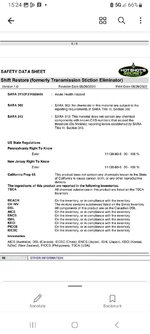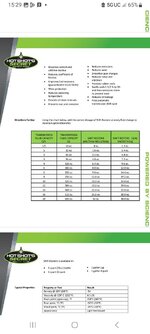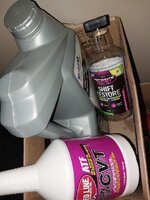Not that I know of… I’m having a problem keeping an oil in the 30w range for 3,000 miles with this car. It’s a TGDI 2.0 and it will turn a 10+ CST at 100c to a >8.6 in 2,750-3,000 miles. This run is Castrol Edge High Mileage 5w30. I’ll sample at 3k and see if it shears or fuel dilutes to a 20w. If so, I’ll most likely try a 10w30 something and possibly a 5w40 down the road. This oil is actually proving to have slightly better fuel economy than the past oils. It’s only been in 1,100 mile so far though so definitely not conclusive. I’m. Only gathering info from the SDS to try and learn the differences and see if one holds grade better than another. Really just trying to learn.
If you have fuel dilution which is likely, no brand or base composition will withstand that better than any other. Only grade can do that.




